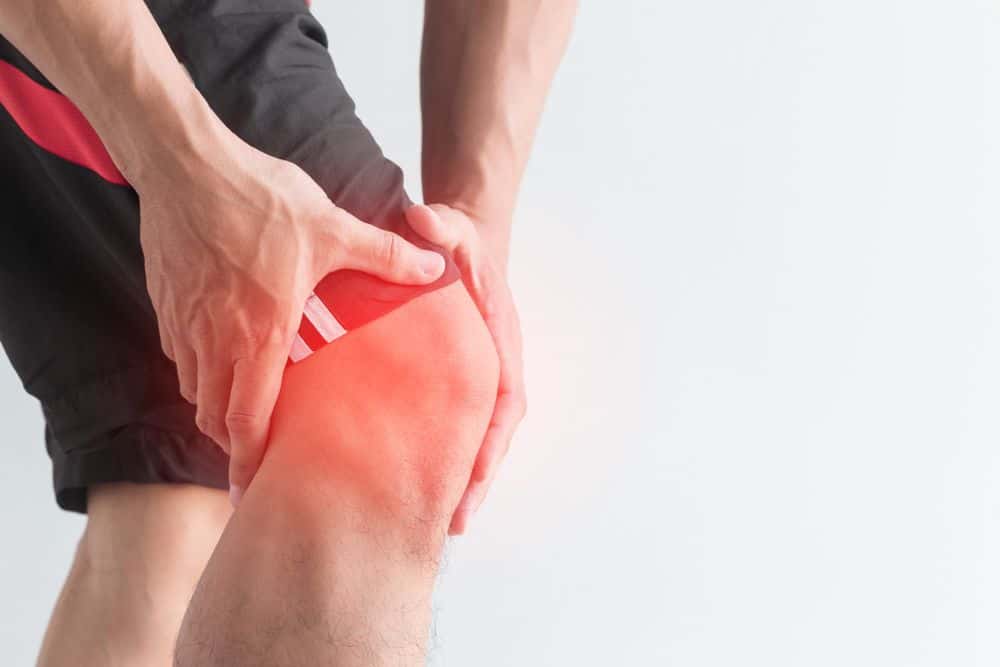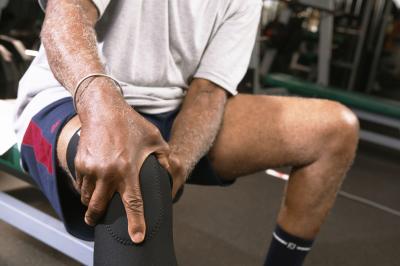Is A Stair Stepper Good For Bad Knees?
Stair steppers simulate walking up stairs, they strengthen the muscles around the knee joint while strengthening the muscles around the knees.
But is the stair stepper good for bad knees? Stair steppers are good for bad knees because they strengthen the joint around the knee and improve knee health. If your knees are in good condition then the stair stepper won’t do them any harm. But the stair stepper isn’t for everyone, if you suffer from chronic knee pain or problems it’s important to seek advice from a medical professional first before using any exercise equipment.
Let’s look at how the stair stepper affects joints and look deeper into who shouldn’t use a stair stepper.

Is Stair Stepper Hard on Knees?
The stair stepper is considered a low impact exercise because both feet are always touching the platform. Any low impact exercise is a great option for people with weaker joints.
It allows you to increase the resistance level to burn more calories without impacting the knees as much as a high impact exercise like running.
Knee joint problems make exercising difficult and sometimes painful. The stair stepper is a useful piece of exercise equipment that mimics the action of walking up a set of stairs.
When you climb a flight of stairs you lift the leg up which activates the hamstrings, glutes, quads and calves.
Does a Stepper Strengthen Knees?
The stair stepper specifically focuses on the quadriceps which are located on the thigh, attached by a tendon to the kneecap. When the leg extends at the knee, this muscle is responsible for keeping the knee stable.
If you haven’t yet suffered from an injury to the knee it’s important to strengthen the muscles around the knee joint, as recommended by the National Institute of Arthritis. Strong leg muscles not only provide stability but support the knees, this makes them less susceptible to injury.

Stair Stepper Exercise for Arthritis
Using a stair stepper for 30 minutes per day is an ideal piece of equipment for strengthening the knee joint. A 2016 study found that the most engaged muscles when you walk up stairs are those that support the knees. But, use caution if you have arthritis or a knee injury.
One problem with the stair stepper is that the movement is subject to stress on the knee joint. Every time you go through the step motion, up and down the knee joint takes the impact through the weight of your body plus gravity.
So if you have knee pre-existing knee problems then the stair stepper shouldn’t be used. It could make your knee problems worse because the movement is overworking the joints further.
If you are cleared to exercise by your physician. To be extra safe, use reinforced knee support:
How to use the Stair Stepper without impacting knees
Proper form is paramount when using the stair stepper, using it incorrectly could result in unnecessary pressure on your joints and result in injury. Stand up with your back straight and chest pointed upwards.
Use your arms for momentum while keeping your hips level. Use your arms to control the movement and don’t rock side to side. If you feel any pain in your knees or joints then stop using the stair stepper immediately.
Fitness Equipment for Bad Knees
If you do suffer from a pre existing condition that affect your knees there are some alternative exercise or equipment you can opt for that offer the same benefits as a stair stepper but are easier on the joints.
Elliptical trainers for example direct the body through a forward and backward circular motion which have little to no impact on your knees.
Final thoughts on Stair Stepper and Knees
As highlighted the stair stepper is not bad for your knees. There is no reason why it should be harmful to your joints unless you suffer from arthritis or a pre existing condition.
The stair stepper is considered a great exercise for strengthening the muscles around your knee joint.
As with any exercise, start slow and build up your familiarity with the movement, if you feel any pain or discomfort stop doing the exercise.
An ex-triathlete, fitness coach and writer with a Masters in Sports Physiology. Fitness is my passion and I've had my fair share of home fitness equipment tried and tested!



One Comment